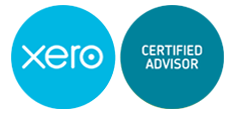For businesses and employees alike, we are going through a tough period due to the impact that escalating inflation is having on the cost of living for all concerned. Inflation is at its highest rate for 40 years in both the UK and US and expected to continue to rise, therefore placing further pressure on us all.
Household incomes are being squeezed from all sides, whether it be energy costs, the cost of petrol or diesel, the weekly food shop or mortgage rates due to increasing interest rates. As an employer, you are unlikely to be able to increase salaries for all employees – and certainly not in line with inflation – so a different approach is needed to help your employees with their finances.
As an employer, you will know it is mandatory to have a workplace pension scheme which you enrol eligible employees into. The minimum employer contribution starts at 3% with an employee having to pay 5% (your scheme may operate differently) and despite the effects of the pandemic and cost of living crisis, the take-up rate of workplace pension schemes remains high – although this may start to change in the short term.
How can your workplace pension scheme help both the company and your employee finances?
Over the 25 years that I have been working in the financial services industry, it has been possible to set-up a workplace pension scheme using salary exchange (also known as salary sacrifice). However, at Integrity365 we are regularly meeting new clients that do not offer this facility and often are not aware it is an option.
Salary exchange is a tax-efficient way for employees to save into a pension and create valuable National Insurance Contribution (NIC) savings for the employee and employer.
How does salary exchange work?
Typically, employee pension contributions are deducted from an employee’s net pay and therefore after the deduction of Income Tax and NIC. With salary exchange, the pension contributions are switched and deducted from an employee’s gross salary, meaning employees & employers do not pay Income Tax or NIC on the respective employee pension contribution.
By switching to salary exchange, it costs the employee less to fund their pension and creates a valuable employer NIC saving which can be retained, shared with the employee or used towards introducing or enhancing existing employee benefit provision.
What does this mean for my employees?
Let’s look an example for an employee earning £30,000 who contributes 5% of their Basic Salary into pension scheme each month.
Currently, it will cost this employee £100 from their net pay to receive an overall employee contribution of £125 invested in their pension plan. Through the salary exchange mechanism, the employee continues to save 20% Income Tax but now also saves NIC at a rate of 13.25% (reducing to 12% in 2023/24), therefore reducing the monthly cost to £83.43.
As a result, this employee will be £16.57 better off in their monthly take home pay or £198 per annum and they will continue to have the same overall amount paid into their pension.
Note salary exchange is not beneficial for all employees, and it is important employers understand employees that should be excluded, typically anyone paid close to the National Living Wage.
Employees also need to be aware, salary exchange may impact certain state benefits such as Statutory Maternity Pay/Paternity Pay.
Salary sacrifice could also affect the amount that you can borrow as a mortgage.
What are the benefits for employers?
As an employer, you will save NIC on the amount of pension contribution exchanged by your employees. Based on the above example, this creates an employer NIC saving of £18.81pm (2022/23).
Let’s assume you have 30 employees with an average salary of £30,000 per annum. If all employees participated in salary exchange, the company would save £6,771 per annum based on the current employer rate of NIC of 15.05% (this reduces to 13.8% in April 2023). Also note that this is an annual saving, and therefore becomes significant when built up over the years and will increase if the number of employees within the business grows.
What is the key to successfully implementing salary exchange?
Assuming your payroll provider/system can accommodate (always best to check early), the key is effective employee communication because your employees are unlikely to participate if they do not understand how it benefits them, meaning all parties miss out.
Salary exchange also represents a contractual change, so it is imperative the switch is correctly documented.
More information
Integrity365, a Beavis Morgan group company, offers a range of literature, webinars and presentation support to help employers communicate the benefits of a change to maximise take-up rates.
This represents a very tax-efficient way of helping boost your employee take-home and we can happily calculate potential employer and employee NIC savings on your behalf.
If you would like more information, please contact your usual BM Connect adviser or get in touch with Craig Pritchard at Integrity365.






